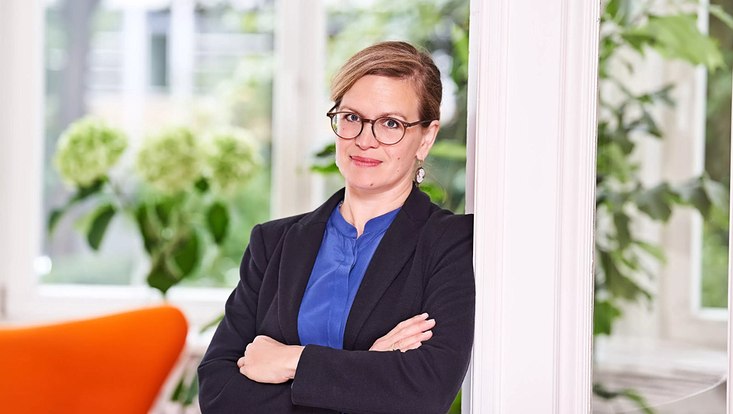18 July 2023
New cooperation project between Universität Hamburg and the Hamburger Kunsthalle1933–1969: How Political Was Hamburg’s Art Museum?

Photo: HIAS / Claudia Höhne
The project Auf Linie? Die Hamburger Kunsthalle in Nationalsozialismus, Besatzungszeit und Bonner Republik (1933–69) focuses above all on the museum’s activities in contrasting political and social systems: Starting with the National Socialist seizure of power (subproject A—dissertation) and the occupation as well as the young Federal Republic of Germany, the “Bonn Republic” (subproject B—dissertation), the project will move on to subproject C with the establishment of the post-War Bonn Republic until 1969 and the laying of the groundwork for contemporary art in the museum’s collection and nationally. In subproject D, the influence of the Art History Seminar at Universität Hamburg and the link between university and museum-based art history research will be explored.
“The Hamburger Kunsthalle, as a leading museum in the city, had a special political place in regional and national networks,” says Prof. Dr. Iris Wenderholm, professor of European art history in the early modern period at Universität Hamburg. Dr. Ute Haug, head of provenance research and collection history at the Hamburger Kunsthalle adds: “To what extent these networks and their related activities influenced museum activities and the collection and which developments resulted that were consequential beyond the museum is one of the core questions of this research project.”
To understand what this all meant for the political instrumentalization of the collection, which cultural policies were inspired by the museum, and which public these targeted, the project researchers will also look at the staffing situation in the museum and the networks of directors and decision-makers.
Of great relevance is the question as to when exactly, and in what ways, ideas about society’s role in art entered museum praxis and how these manifested in individual museum collections, exhibitions, research, and outreach. For the National Socialist period, for example, researchers will look at how the museum became part and parcel of Hamburg’s transformation to “the capital of German shipping,” while for the period of occupation, the influence of British administration, among other things, will form the focus; for the period in which Bonn was the capital of the post-War Federal German Republic, researchers will look at the effects of American cultural policy.
Wenderholm and Haug are cooperating closely on the project. They will be drawing on the Hamburger Kunsthalle’s historical archives, the Federal Foreign Office’s political archives, and the German national archives in Nuremberg as well as the national archives in Paris and the Getty Research Institute in LA. The German Research Foundation is supporting this project for 3 years. The project is set to begin in fall 2023.
